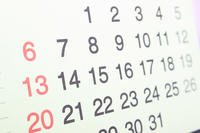President Joe Biden on Monday signed into law the sweeping annual defense policy bill that supports a 2.7% base pay raise for service members in 2022, a slight decrease from the 3% raise troops got this year.
The $768 billion National Defense Authorization Act, or NDAA, also changes the way the military justice system will prosecute sexual assault and related crimes, launches an independent commission to review the 20-year war in Afghanistan, allows troops to take 12 weeks of parental leave and specifies that service members discharged for refusing to take the COVID-19 vaccine can get no less than a general discharge under honorable conditions.
"There's a lot to be proud of in this bill," House Armed Services Committee Chairman Adam Smith, D-Wash., said in a statement Monday hailing the bill being signed into law for the 61st straight year.
"The FY22 NDAA supports a well-deserved pay raise for our service members, diversity and inclusion initiatives across our military, and the Department of Defense's role in the Biden-Harris Administration's whole-of-government response to the climate crisis," Smith continued. "Ultimately, this year's NDAA focuses on what makes our country strong: our economy, diversity, innovation, allies and partners, democratic values, and our troops."
Read Next: Housing Company that Defrauded Military Ordered to Pay $65 Million
Annual base pay raises for service members are set by a federal formula that's tied to expected growth in private-sector wages and go into effect Jan. 1, even without the NDAA.
But the NDAA is often described as supporting or authorizing the pay bump since the funding level authorized by the bill would finance the raise.
Still, the NDAA is a policy bill, not a spending bill, meaning the funding in the NDAA won't become a reality until Congress passes a separate defense appropriations bill.
Right now, the Pentagon and the rest of the federal government are operating under a stopgap spending measure known as a continuing resolution, or CR, that essentially keeps the government on autopilot by extending the previous year's funding.
Service members still get the 2.7% pay raise in the new year even if funding isn't boosted, but defense officials have warned that the longer a CR goes on, the more they will have to dip into other funds to pay for that raise. The pay raise supported by Congress matches what Biden recommended in his fiscal 2022 budget request, which in turn matched the federal formula for military raises.
The current CR expires in February, and lawmakers have shown no progress on a regular funding bill.
This year's NDAA has been marked more by what was left out than what made it in. The bill passed both chambers of Congress with wide bipartisan majorities earlier this month.
A sweeping overhaul of how the military justice system prosecutes almost all major crimes that was included in the initial Senate version of the NDAA was left out of the final version of the bill negotiated by the leaders of the House and Senate armed services committees.
Still, the bill that was signed into law creates prosecutor positions called "special trial counsel" to handle cases of sexual assault and related crimes, as well as murder, manslaughter and kidnapping. While that's a narrower change than some lawmakers and advocates pushed for, other lawmakers and advocates have nonetheless hailed the reform as transformative and historic.
Also left out of the compromise NDAA was a provision that would have required women to register for the draft and another that aimed to provide the military with more tools to root out extremists from the ranks.
-- Rebecca Kheel can be reached at rebecca.kheel@military.com. Follow her on Twitter @reporterkheel.
Related: Defense Bill Headed to Biden's Desk as Military Justice Debate Rages On














